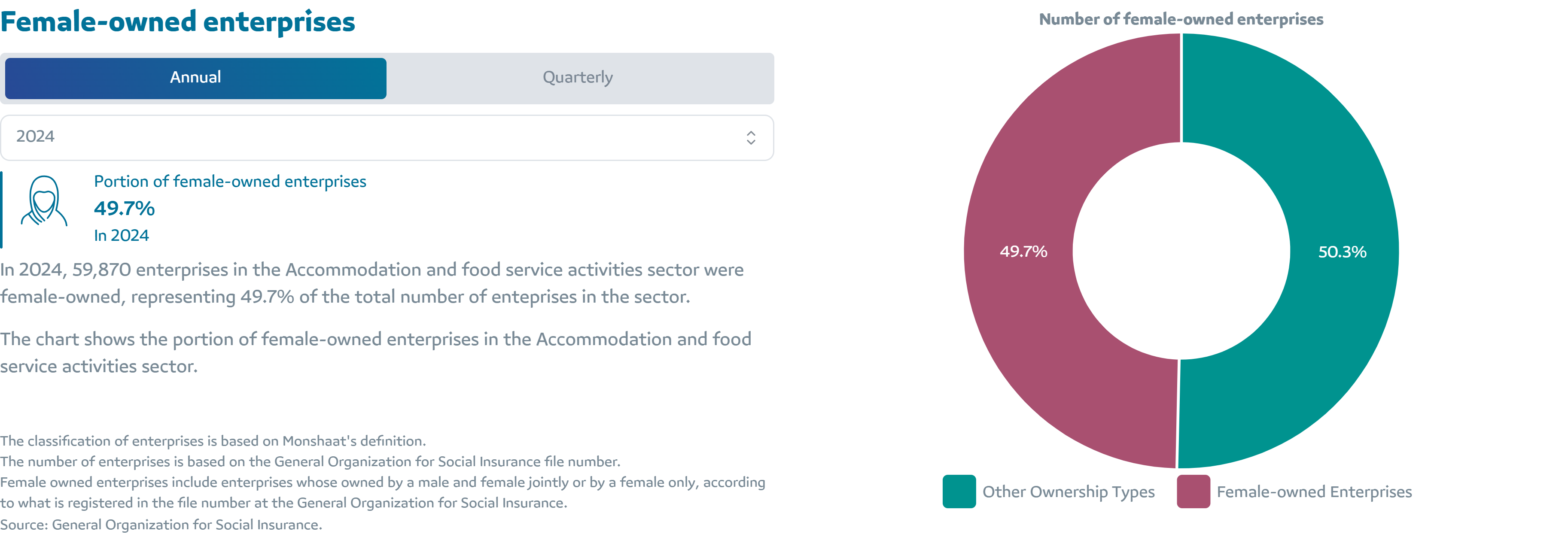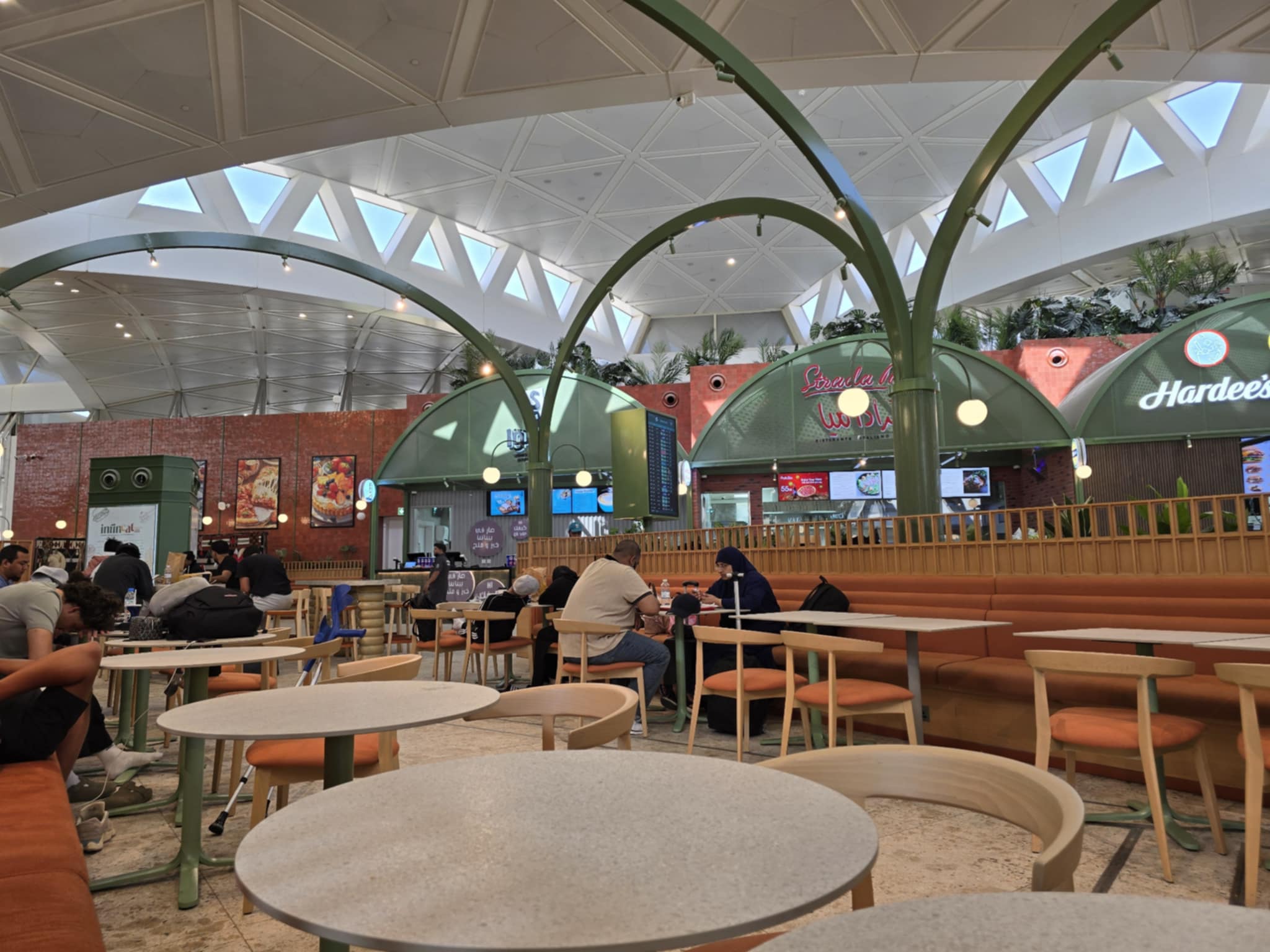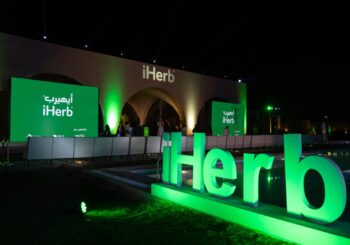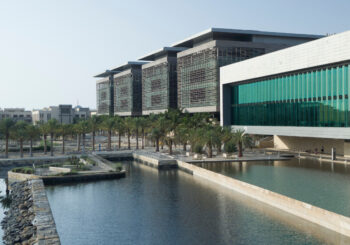In 2024, Saudi Arabia marked a significant milestone in women’s economic participation, with nearly half of all enterprises in the accommodation and food service sector owned by women.
According to the latest Business Atlas published by the General Authority for Small and Medium Enterprises (Monsha’at), 59,870 businesses in the sector were female-owned (or included both a female and male owner registered). This represents 49.7 percent of the total enterprises in accommodation and food services across the Kingdom.
The sector, which includes restaurants, cafes, bakeries, catering companies, and hotels, has become one of the most prominent entry points for women entrepreneurs in Saudi Arabia. The rise in female ownership reflects wider economic reforms under Vision 2030, which aims to increase women’s participation in the workforce and support small and medium-sized enterprises across the country.
Within the accommodation sub-sector specifically, 1,741 businesses were owned by women in 2024. This accounts for 22.8 percent of all accommodation enterprises, indicating a growing but still smaller share compared to the food-related segment of the industry. Meanwhile, within the food and beverage sub-sector, 58,129 enterprises were owned by women in 2024, accounting for 51.5 percent of the total enterprises in this sub-sector.

Women are not only establishing businesses in the sector, but also representing a significant portion of the workforce. In 2024, Saudi women accounted for more than half of all Saudi employees in the accommodation and food service sector. A total of 71,001 Saudi women were employed, compared to 69,684 Saudi men.
When including foreign employees, there were a total of 632,004 male employees in the sector. Of these, 11 percent were Saudi nationals and 89 percent were non-Saudis.
In contrast, there were 80,428 female employees overall. Of these, 88.3 percent were Saudis and 11.7 percent were non-Saudis. This distribution highlights a strong presence of Saudi women in the sector, both as business owners and employees.
Women’s Participation on the Rise
The increase in women-led businesses comes in the context of policy reforms that have reduced barriers to business ownership for women. These include changes allowing women to register businesses, apply for financing, and operate without requiring a male guardian’s approval.
Monsha’at and other government entities have also introduced support programs targeting female entrepreneurs. These programs offer training, mentorship, and access to funding. Together, these measures have contributed to a more enabling environment for women seeking to establish and grow businesses in sectors that were previously male-dominated.
The presence of women-led restaurants, cafes, and catering services is increasingly visible in urban centers such as Riyadh, Jeddah, and Tabuk. These businesses are contributing to job creation and diversifying the local economy. They also reflect broader cultural changes, as more women enter public-facing roles and participate actively in business development.
While challenges remain, the data highlights a shift in the structure of the Saudi business landscape. Female entrepreneurs are playing a growing role in shaping the future of the Kingdom’s hospitality and food service industries.
The trends observed in 2024 signal the potential for continued growth in female business ownership, particularly as Vision 2030 initiatives continue to unfold and further support mechanisms are implemented.








Comments (0)